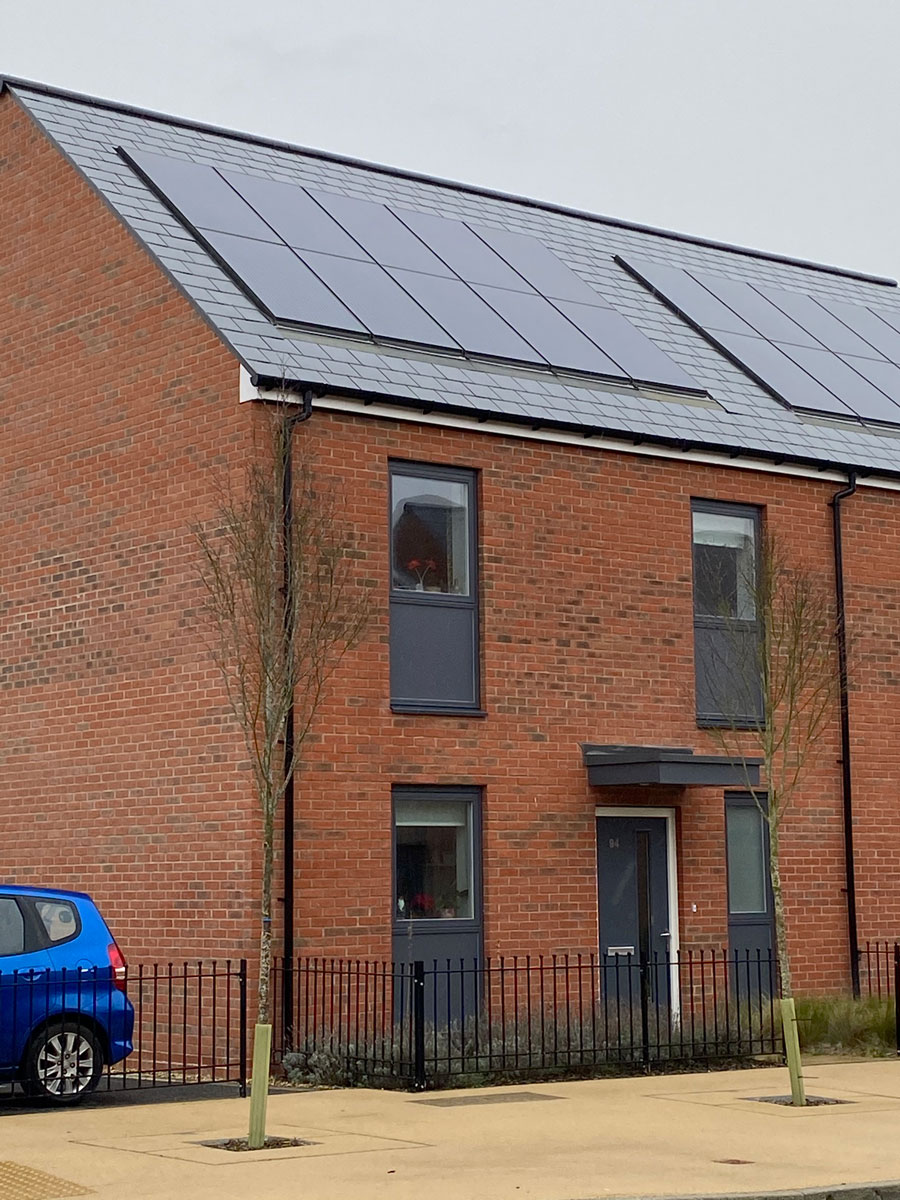CREDS researcher, George Bennett, talks about living in an EcoHome
Buying a house is a big decision, one of the biggest, and as the old adage goes, the most important thing is ‘location, location location’. But when moving back as newlyweds from living abroad and looking for a home, my wife and I decided to approach the decision less one dimensionally.
As a researcher in building energy demand, I am painfully aware of the impact domestic energy use has on our emissions and environment, so I was keen to ‘practise what I preach’ by living in a low energy building. But we wanted a home, not just a building, and like so many of us we don’t really want to suffer for our green aspirations. We had lived in a series of well insulated warm flats while living in Germany and didn’t want to go back to a drafty Victorian terrace with gas bills that would only go in one direction. Some idle internet research of homes in the area we were looking (to be close to family and work commitments) led us to the newly constructed EcoTown in Bicester. After a viewing and comparison with other homes and new developments in the town, it was clear to us that this was a place we could call home.
PV panels, rainwater harvesting, mechanical ventilation, district heating (granted this is still burning natural gas for now) and, crucially, high insulation levels all provided the backdrop for a home that would meet our lifestyle expectations. The premium in the asking price seemed value for money given the quality of the building and the services, in fact the equivalent ‘normal’ newbuilds seemed massively overpriced in comparison. Beyond the financial considerations, the home would help to ease the domestic disputes over the thermostat temperature, as a Scot married to a Turk the tension of heating costs and indoor comfort is easier to resolve when heating doesn’t cost the earth.
EcoHome life
So here we are, 2 years into our ‘EcoHome’ life and I am happy to report it has more than lived up to expectations. The ecotown has attracted like-minded people, leading to a thriving community with an environmental conscience. The house itself is warm, with good air quality and cheap to run. We feel as if we are in a virtuous circle of continued progress to manage our energy demand and environmental impact, through our home, travel habits and lifestyle.
Sadly, many conspiring issues such as unambitious building regulations and a housing market seemingly neither willing nor able to build homes of the same or better performance as ours means that our experience remains isolated in the UK context, and a concerted effort is needed to make eco-living into normal-living in order to achieve net-zero by 2050.

George was recently interview for BBC Politics about life in an EcoHome. You can watch the interview on iPlayer. (Interview starts at 12 mins 45).
Banner photo credit: Gyula Gyukli on Adobe Stock



